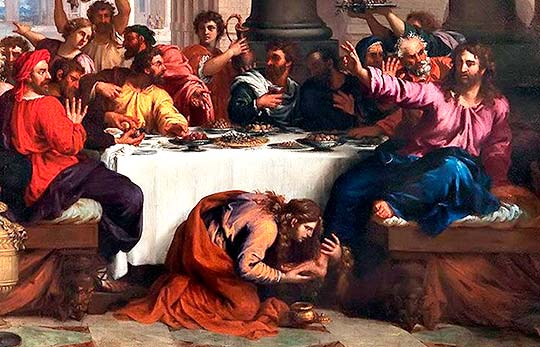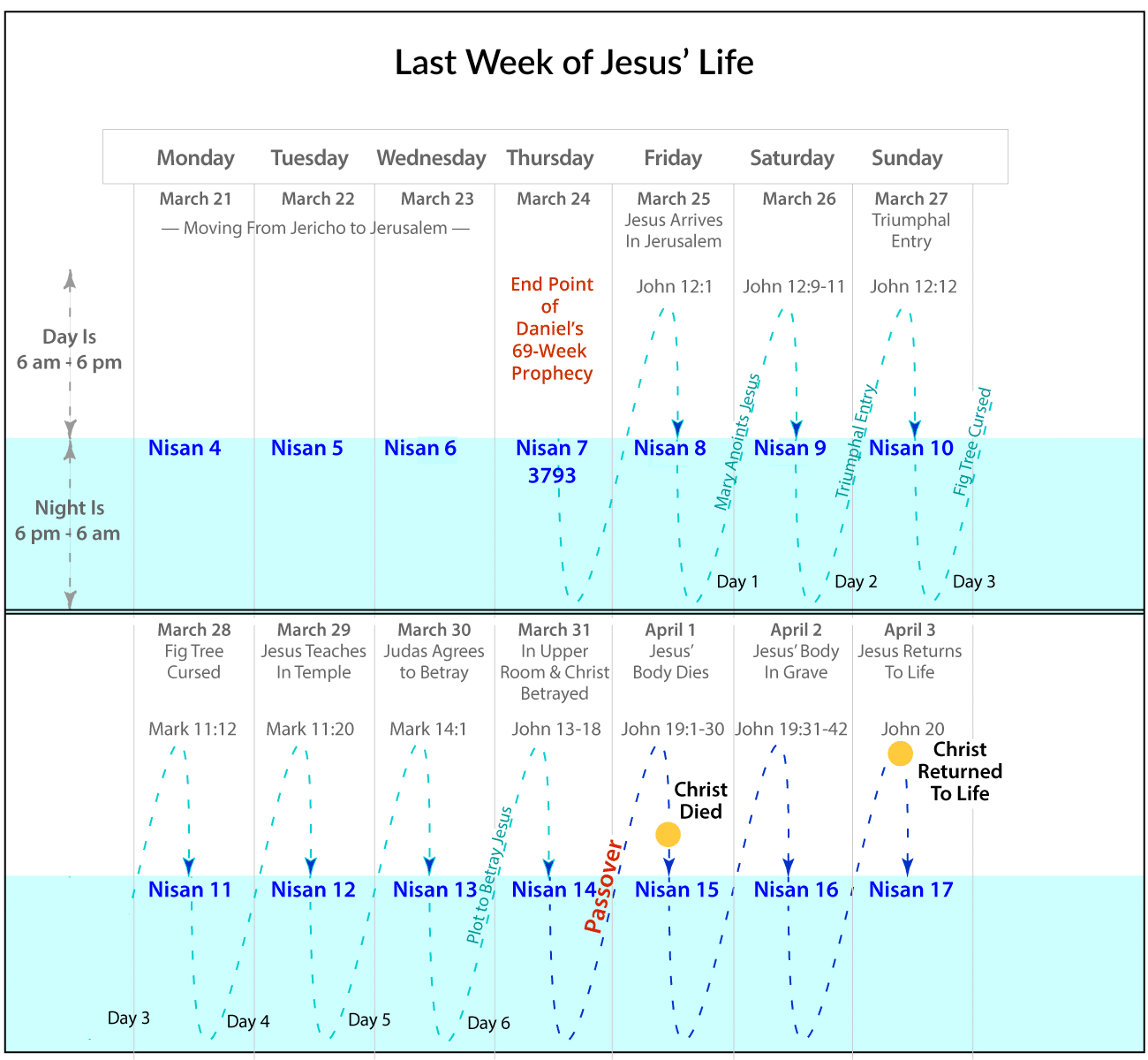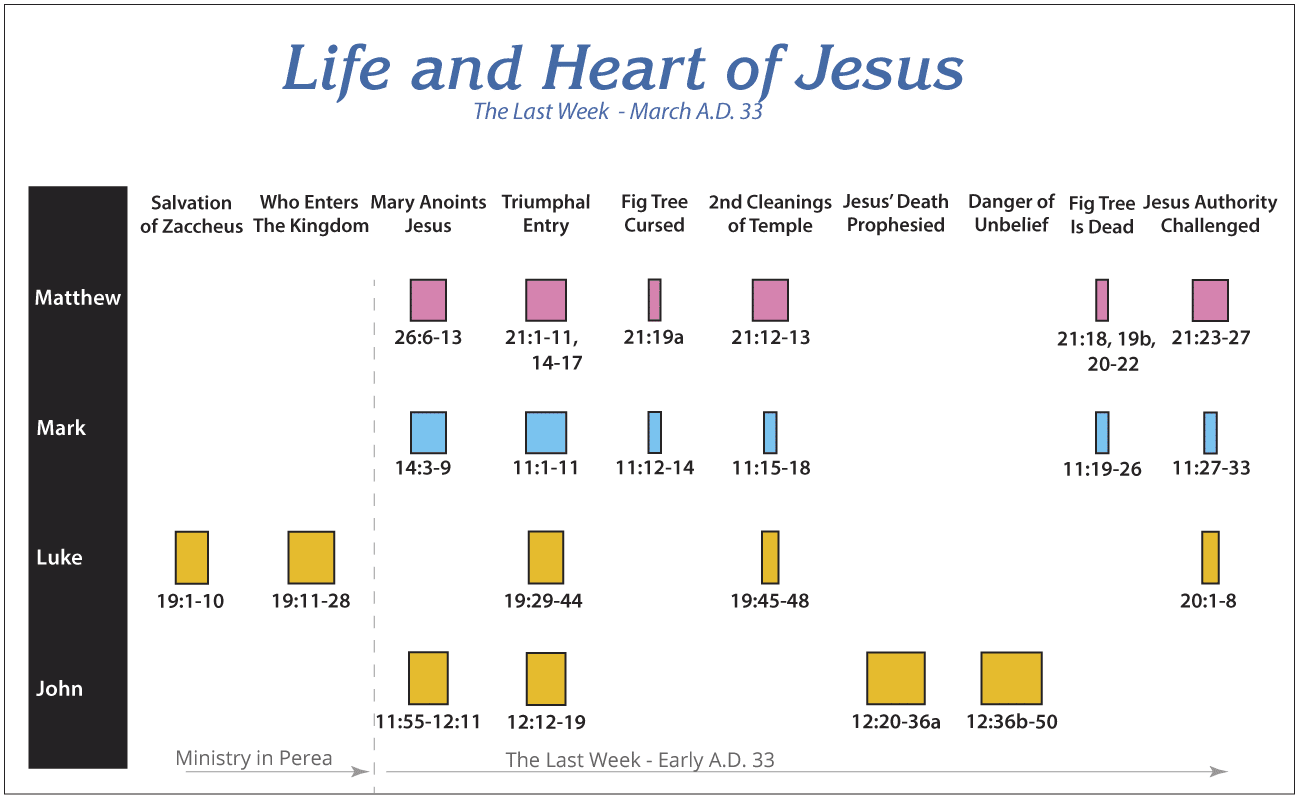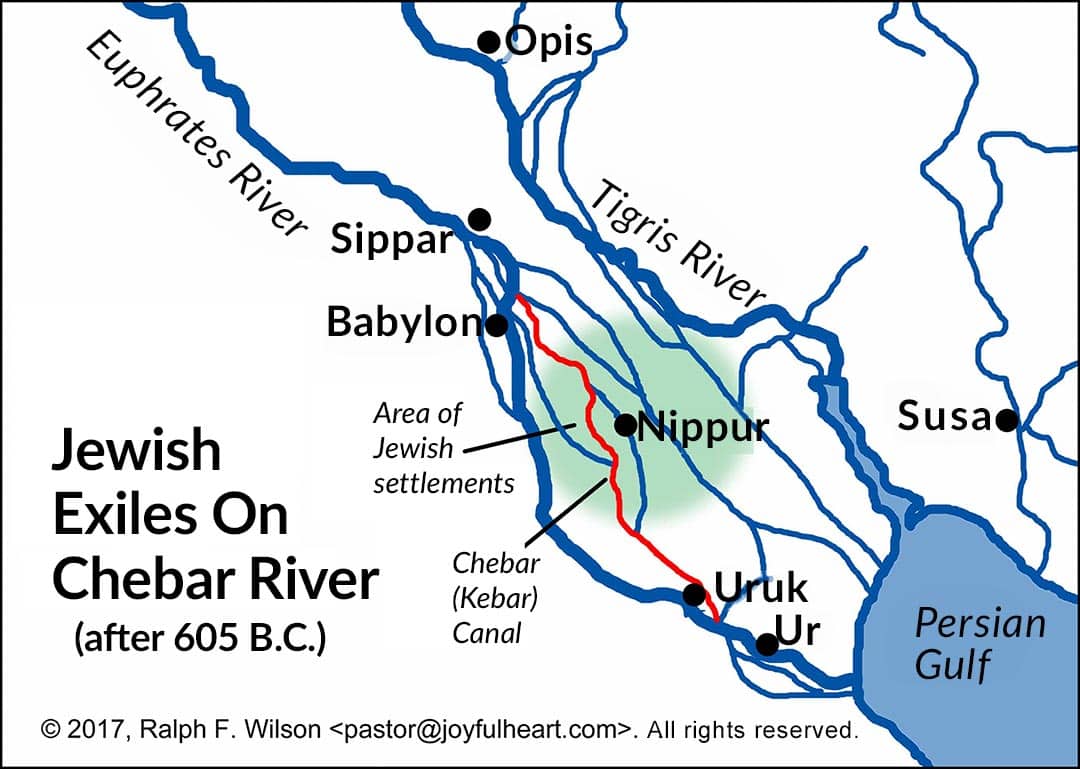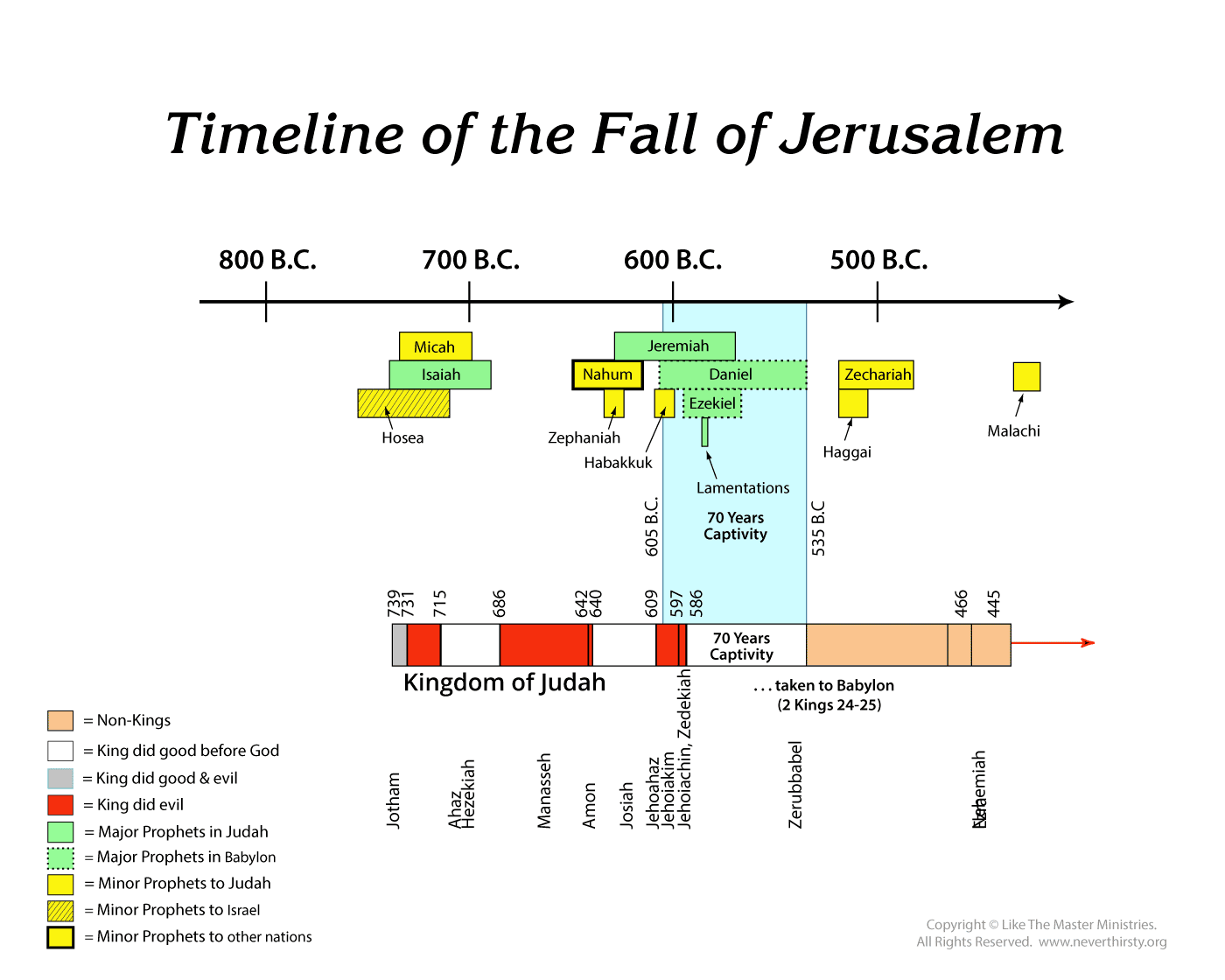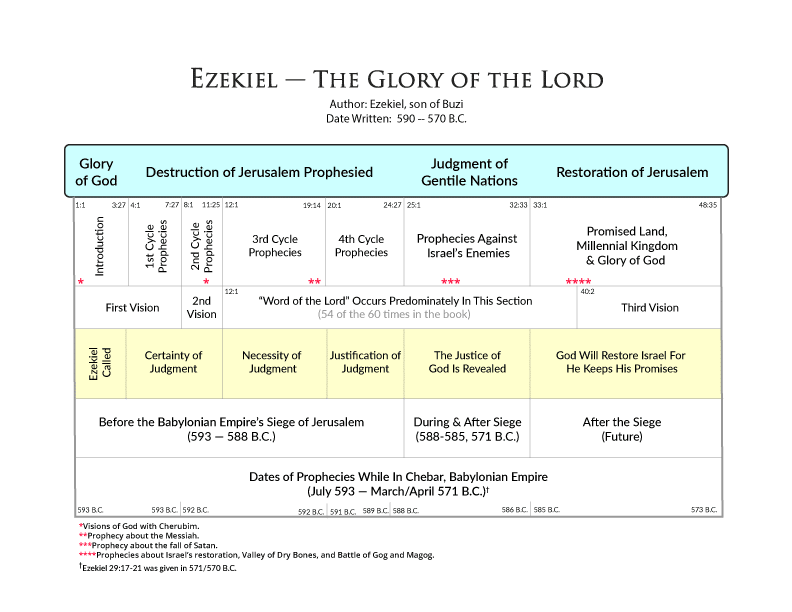Then You Will Know I Am the LORD
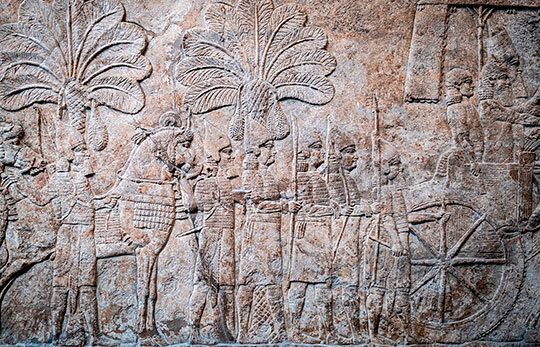
In chapters four and five of the book of Ezekiel, Yahweh gave the Israelites, who were living in Jerusalem and Judah, an overview of the judgment they were going to experience. First, Yahweh said He was going to use the Babylonian army to destroy them. Second, the city would be surrounded and besieged for 430 days, or one year and two months. Third, food and water would be cut off. Famine would occur and they would eat each other in order to survive. Fathers would eat their sons. Even compassionate mothers were going to boil and eat their children, and children would eat their parents. The message is Yahweh’s judgment was going to be terrible because of their sin and idolatry. At the end of chapter 5, Yahweh confirmed that this would happen when He said three times,
I, the Lord, have spoken. Ezekiel 5:17 (NASB)
Then beginning in Ezekiel 6, Yahweh gave the Israelites a new prophecy. It gave more details about the Babylonian army invasion. The prophecy describes the appalling behavior of the Israelites that caused the devastating judgment they would experience. This study is about chapter six.
But before we start digging to discover the meaning of chapter six, I want to provide some background information about the Canaanite religion. The Canaanites worshiped numerous gods and goddesses. The chief god was Baal, and the supreme goddess was Ashtoreth or Asherah. The meaning of the word Baal was “lord.” He was worshiped as lord. The worship of both of these demonic deities occurred throughout the land of Palestine, Egypt, and beyond. The first time Baal is mentioned in Scripture is in Numbers 22:41 when Balaam cursed the Israelites as they entered Palestine. Here is Numbers 22:41-23:2.
Then it came about in the morning that Balak took Balaam and brought him up to the high places of Baal, and he saw from there a portion of the people. Then Balaam said to Balak, “Build seven altars for me here, and prepare seven bulls and seven rams for me here.” Balak did just as Balaam had spoken, and Balak and Balaam offered up a bull and a ram on each altar. Numbers 22:41-23:2 (NASB)
The ”high places” of Baal refers to a place of worship on a mountain. Typically, the high places were located in lush groves of trees. An altar was erected using stone or clay bricks upon which sacrifices would be offered. A stone pole was located nearby that represented the male deity Baal. There was also a wood pole that represented the goddess Asherah. That was the name the Philistines gave her (1 Samuel 31:10). The Phoenicians named her Astarte. The Assyrians named her Ishtar. There was also a tent for eating sacrifices and for practicing prostitution.
Judges 2:10-13 reveals that sometime after Israel was in Palestine, they began to serve Baal. Verse 12 states that Israel abandoned Yahweh. Verse 13 refers to both Baal and Ashtaroth. 1 Kings 16:32 reveals that after King Solomon died, the Israelites built temples to Baal. 2 Kings 11:18 reveals the Baal temple had altars and images of Baal. The religion had over 450 priests at the time of Elijah (1 Kings 18:22).
In Deuteronomy 23:17-18 God warned the Israelites to not allow their daughters or sons to be temple prostitutes, nor to be a prostitute in the Lord’s house. Yahweh’s warning implies males and females were encouraged to engage in sexual activity as part of the Baal religion. Yet, 1 Kings 14:24 and Hosea 4:14 reveal Israel did allow their sons and daughter to be temple prostitutes. Genesis 38:22 may indicate that Judah engaged in Baal worship. 1 Kings 11:5 reveals that King Solomon engaged in the worship of Asherah. Isaiah 57:3–10 reveals the Israelites engaged in many sex orgies. The Asherah was the goddess of love and war. 2 Kings 23:7 reveals women were fully engaged in the religion. They weaved hangings for Asherah.
Baal worship also included the sacrifice of their sons and daughters to Baal or Moloch in fire (Deuteronomy 12:31; 2 Kings 17:16-17; Jeremiah 19:5). Molech was the Baal of child sacrifice. Baal worship also included the practice of the occult and involved the worship of many other gods and goddesses. Supposedly, there were benefits for abandoning Yahweh and devoting oneself to the many gods and goddesses of Baal.
Destruction of the Idolatrous and Idols
With that background, we begin our study in Ezekiel 6:1-14. Verses 1-2 reveal that Yahweh gave the prophet Ezekiel another prophecy.
And the word of the LORD came to me saying, 2 “Son of man, set your face toward the mountains of Israel, and prophesy against them . . .” Ezekiel 6:1-2 (NASB)
This prophecy is the second one that is included in the vision that started in Ezekiel 1:1. Once again Yahweh calls Ezekiel human and tells him to prophesy against the mountains of Israel. The worship of Baal and other false gods and goddesses was occurring in other places around the world, but Yahweh is focused on His chosen people (Deuteronomy 7:6; 14:2). Now we know why Ezekiel was going to prophesy against these mountains.
Verses 3-4 indicate the prophet was to actually speak against the mountains, hills, ravines, and valleys.
“ . . . and say, ‘Mountains of Israel, listen to the word of the Lord GOD! Thus says the Lord GOD to the mountains, the hills, the ravines and the valleys: “Behold, I Myself am going to bring a sword on you, and I will destroy your high places. So your altars will become desolate and your incense altars will be smashed . . .”’” Ezekiel 6:3-4a (NASB)
The background study helps us understand why the prophet was commanded to speak to the mountains, hills, ravines, and valleys and announce that Yahweh was going to destroy the high places and altars. The high places were where the worship of the Baals and Asherah occurred. The high places were known for luxuriant trees, flowers, and cooler weather. That reveals those who engaged in the worship of Baal and the Asherah liked beauty. but Yahweh was going to destroy these places, make them desolate, and smash them.
Verses 4-5 reveals that Yahweh would also kill the people for engaging in false worship. Here is the last part of verse 4 and all of verse 5.
. . . and I will make your slain fall in front of your idols. I will also lay the dead bodies of the sons of Israel in front of their idols; and I will scatter your bones around your altars. Ezekiel 6:4b-5 (NASB)
Yahweh also prophesied that He would cause the dead to fall in front of their idols and scatter their bones around the altars. Normally, the bones of the animals offered to Baal were left around the altar. So, Yahweh said, “I will leave your bones in front of your idols and around your altars.” Dead human bodies caused people to be unclean (Numbers 19:11). The message was that Baal and the Asherah were going to be made unclean.
We have learned that in the high places the idols of Baal and Asherah were poles. Also, we have learned that these Jewish adults sacrificed their children. So, this is a very graphic prophecy. They would die just as they caused their children to die. But notice that Yahweh does not claim that He will leave their bodies before the idols and altars. Yahweh is not engaging in false worship.
Yahweh had already warned them that He would destroy their high places and incense altars and kill them, if they engaged in false worship. He gave them this warning in the wilderness before they entered Palestine. He said,
I then will destroy your high places, and cut down your incense altars, and heap your remains on the remains of your idols, for My soul shall abhor you. I will lay waste your cities as well and will make your sanctuaries desolate, and I will not smell your soothing aromas. I will make the land desolate so that your enemies who settle in it will be appalled over it. You, however, I will scatter among the nations and will draw out a sword after you, as your land becomes desolate and your cities become waste. Leviticus 26:30-33 (NASB)
In verses 6-7, the prophet was told to prophesy against their dwellings and cities.
In all your dwellings, cities will become waste and the high places will be desolate, that your altars may become waste and desolate, your idols may be broken and brought to an end, your incense altars may be cut down, and your works may be blotted out. The slain will fall among you, and you will know that I am the LORD. Ezekiel 6:6-7 (NASB)
The dwellings would have included homes, stores, and any other place a person could live. So, Yahweh promised that their homes, buildings, and cities would become waste, and once again the high places and idols would become desolate. Their idols would be broken. The Hebrew word for “idols” is gillulim. It has the meaning of “detestable things,” or “contestable.” They were ugly things. Yahweh promised their altars would be cut down or broken in pieces. Their works would be blotted out. All of their labor and effort to build these idols and altars would be destroyed. All of the sacrifices of their children were of no benefit.
Notice that the prophecy has moved from the mountains to their buildings and cities, and finally to the people themselves. The message is everything is polluted. Their false worship was on the hills and was evident in their homes, the roofs of their homes, their buildings, and in their cities. Their evil, idolatrous hearts had affected everything. So everything, including them, would be destroyed. As we have already learned in the background study, the Canaanite religion had spread throughout the land of Israel. It was everywhere. Jeremiah 11:13 says that Baal temples were everywhere. Jeremiah 32:29 indicates they existed even on the roofs of homes. The land was polluted with false worship.
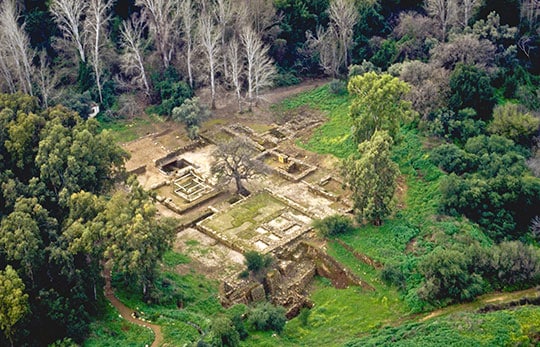
Ezekiel was to then tell the people, “The slain will fall among you, and you will know that I am the LORD.” Baal was not the Lord. Yahweh was the Lord. After the prophecy was fulfilled, they would finally understand that Yahweh had spoken. He had spoken in Leviticus 26:30-33 and He had spoken through Ezekiel as well as Jeremiah. The same is true for people today. Unbelievers will die like the rich man in the parable of Lazarus and the rich man. They will go to hell, and then realize that God has spoken. But then it will be too late. Some will be alive when the great tribulation starts. Then they will know that Yahweh has spoken. Unbelievers will someday believe in God when it is too late. What He prophesies will come true.
Today, our nation is polluted with the “idol of me.” It is evident in our politics. Our leaders have abandoned God. They do what is right in their own eyes. Judges 21:25 tells us that was Israel’s problem. It says,
Everyone did what was right in his own eyes. Judges 21:25 (NASB)
When leaders abandon God, they operate without wisdom, justice, integrity, righteousness, knowledge, every good deed, and discretion. That is the message of Proverbs 2:1-11. So, we are seeing a gross lack of wisdom, rapid increase of corruption in high levels, stupid decisions in so many areas, and blatant injustice. We are also seeing sexual perversion on the increase in every area of life among our politicians, Hollywood elites, news media, public schools and educators, advertisements, stores, and it is increasing daily. It is increasingly rare to even find sexual purity among young people who call themselves Christians. Increasingly, we are acting like those who worshiped Baal and the Asherah. The altars and idols that we worship are called “me.” “Me” is more important than our children. God is warning us! He is saying that someday, “You will know that I am the LORD.”
A Remnant Will Be Saved
Even though Yahweh said He would destroy them and everything they owned, He always keeps a remnant. That is God’s message starting in verse 8. In that verse, He promised He would leave a remnant. Here are verses 8-10.
However, I will leave a remnant, for you will have those who escaped the sword among the nations when you are scattered among the countries. Then those of you who escape will remember Me among the nations to which they will be carried captive, how I have been hurt by their adulterous hearts which turned away from Me, and by their eyes which played the harlot after their idols; and they will loathe themselves in their own sight for the evils which they have committed, for all their abominations. Then they will know that I am the LORD; I have not said in vain that I would inflict this disaster on them. Ezekiel 6:8-10 (NASB)
The first thing we should notice in verses 1-7, is that God revealed the plan He would execute against every rebellious person who refused to submit to Him. Those who continued in false religion revealed they have completely rejected God. Those who have ultimately rejected God are those whom God will eventually destroy in the fires of hell. We discovered in the last two studies, that God is slow to punish us for sin. That reveals His love. Yet, God’s holiness and justice also demand that He must punish eventually the belligerent who refuse to submit to Him. Now in verses 8-10, another characteristic of God is visible. He is also merciful. He preserves a remnant. This gives us an important truth about the message of chapter 6. God justly punishes belligerent sinners, and shows mercy to the repentant.
Verse 9 is very important for us. It helps us understand the characteristics of a repentant person. We are given three important characteristics about the remnant. First, Yahweh always has a remnant who will remember Him. They may drift away from Yahweh briefly, but eventually they will return. This is a biblical principle. 1 John 2:19 is an important verse to remember,
They went out from us, but they were not really of us; for if they had been of us, they would have remained with us; but they went out, so that it would be shown that they all are not of us. 1 John 2:19 (NASB)
In Philippians 1:6 the apostle said,
For I am confident of this very thing, that He who began a good work in you will perfect it until the day of Christ Jesus. Philippians 1:6 (NASB)
What God starts, He will finish. When He saves someone, they never completely abandon Him. So, the first characteristic of the remnant, or of a true believer, is that they never completely abandon God.
The second characteristic of the remnant is that they will remember how they have hurt God by pursuing pleasure in something else. Notice what Yahweh said in the middle of the verse. He said they will remember,
. . . how I have been hurt by their adulterous hearts which turned away from Me, and by their eyes which played the harlot after their idols . . . Ezekiel 6:9b (NASB)
The Hebrew word for hurt can be translated as “to crush, to smash, to shatter,” and brokenhearted. Yahweh is describing the reaction of a wounded husband or wife to an adulterous spouse. He feels hurt when we turn away from Him and pursue our own pleasures and desires. If we have another idol in our life, we have played the harlot. Colossians 3:5 describes some idols we should think about,
Therefore consider the members of your earthly body as dead to immorality, impurity, passion, evil desire, and greed, which amounts to idolatry. Colossians 3:5 (NASB)
If any of these keep you away from God, then they are idols. We need to ask if any of these emotions or feelings are connected with something in our lives. Are we doing something to satisfy these emotions? It is feelings like these that cause us to abandon God for something else.
The third characteristic of the remnant is that they,
. . . loathe themselves in their own sight for the evils which they have committed, for all their abominations . . . Ezekiel 6:9c (NASB)
The Hebrew word for “loathe,” qut, refers “to grieving, to disgust, to abhor, or to detest.” It is a feeling that leads one to beg God to forgive. In Job 10:1, Job said,
I loathe my own life. Job 10:1 (NASB)
In Psalm 139:21, David said,
Do I not hate those who hate You, O LORD?
And do I not loathe those who rise up against You?
Psalm 139:21 (NASB)
So, a true believer loathes or hates their sin. That describes the apostle Paul’s feelings about his own sin. He wrote that he did not like what he was doing. He was struggling to be obedient. Then he wrote this,
Wretched man that I am! Who will set me free from the body of this death? Romans 7:24 (NASB)
He displayed the heart of a believer. True believers loathe their sins. That leads them to confess their sins. 1 John 1:9 tells us to confess our sins and He promises to forgive them.
So, the first characteristic of the remnant, is that a true believer never completely abandons God. The second characteristic of the remnant is that a true believer remembers how they have hurt God by finding satisfaction in something else. They remember their sins. The third characteristic of the remnant is that a true believer loathes their sin, which leads them to confess their sins.
Verse 10 describes the response of a forgiven believer.
Then they will know that I am the LORD . . . Ezekiel 6:10a (NASB)
The last part of verse 10 should remind us of Hebrews 12:4-11 which tells us that God uses discipline to motivate us to stop sinning, and bring us back to Him.
Then You Will Know I Am The Lord
The next two verses express a sense of satisfaction for Yahweh because He has finally punished the rebellious who will never repent.
“Thus says the Lord GOD, ‘Clap your hand, stamp your foot and say, “Alas, because of all the evil abominations of the house of Israel, which will fall by sword, famine and plague! He who is far off will die by the plague, and he who is near will fall by the sword, and he who remains and is besieged will die by the famine. Thus will I spend My wrath on them.”’” Ezekiel 6:11-12 (NASB)
There is confusion about the meaning of “Clap your hand, stamp your foot.” Some think it refers to joy, sorrow, derision, and many other ideas. Ezekiel 33:11 tells us that Yahweh does not take pleasure in the death of anyone. So it is difficult to know how to understand the meaning of the statement. But in Revelation 6:9-10, the tribulation saints ask God, “How long will you refrain from judging and avenging our blood . . .?” So, it seems that it is okay to rejoice that Yahweh repays the belligerently rebellious for their sins. When Yahweh sends His wrath on them, it is because of the choices they made. Yahweh warned them!
Verses 13-14 close the chapter.
“’”Then you will know that I am the LORD, when their slain are among their idols around their altars, on every high hill, on all the tops of the mountains, under every green tree and under every leafy oak — the places where they offered soothing aroma to all their idols. So throughout all their habitations I will stretch out My hand against them and make the land more desolate and waste than the wilderness toward Diblah; thus they will know that I am the LORD.”’” Ezekiel 6:13-14 (NASB)
Here Yahweh said that after He poured out His wrath; then everyone would know I am the Lord. The unbelievers had believed that Baal was their Lord. The meaning of the word “Baal” is “Lord.” Four times in Ezekiel 6, Yahweh said, “I am the LORD.” That is, the Israelites forgot who was the Lord. They had rejected Him, and refused to listen to His prophets. So the Lord said that after He poured out His wrath, then you would know who is the real Lord. When all of their idols, the worship centers, and a massive number of people were destroyed, then they would know that He is the Lord. So, Yahweh made the land of Palestine desolate. Then they knew that Yahweh was the Lord. “I am the LORD.”
Conclusion
The primary message of this chapter is, “Then you will know that I am the LORD.” That simple statement revealed the Israelites in Judah and Jerusalem had rejected Yahweh as the only God. They trusted Baal but not Yahweh. They looked to their idols, altars, and temple, and to those false gods and goddesses. They failed to realize that Yahweh justly punishes belligerent sinners, and shows mercy to the repentant.
Do you have idols in your life that captures and holds your attention, time, and passions? They pull you away from God and result in wasted time and effort. Every idol is an illusion. There is only one God who satisfies. He is Yahweh. When He speaks, His prophecies come true. There is only one God. There is only Yahweh!

